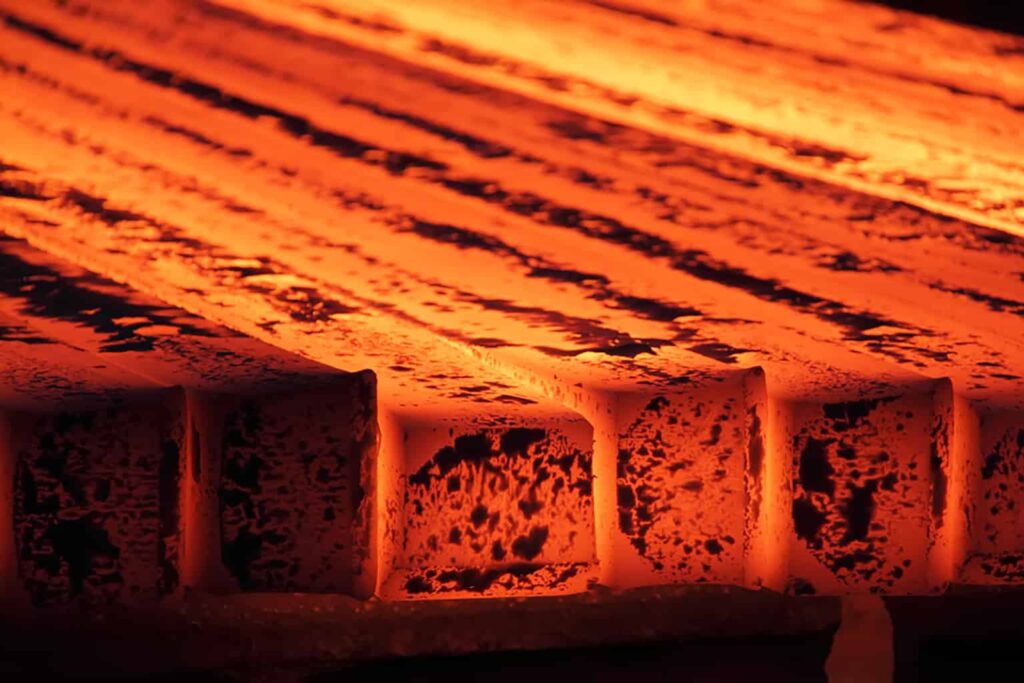Introduction
When sourcing high-quality metal components, heat treating plays a critical role in ensuring reliability, durability, and performance. For bulk buyers in industries like automotive, medical devices, and tool manufacturing, understanding the significance of heat treating is essential for optimizing product quality and reducing long-term costs. YISHANG, with over 26 years of experience in heat treating, specializes in custom solutions designed to enhance material properties such as strength, hardness, and wear resistance. Our services help you meet industry standards while maintaining cost-effectiveness in your bulk orders.
What is Heat Treating? Enhancing Metal Properties for Bulk Orders
Heat treating is a controlled process that involves heating and cooling metals to modify their mechanical properties. By adjusting temperature, time, and cooling rates, heat treating improves strength, hardness, and fatigue resistance, which are vital for components facing high stress or wear.
For bulk procurement, materials such as 4130 heat treatment steel offer the perfect balance of toughness and strength, making them ideal for high-performance automotive applications. By selecting the right heat treating processes, you can ensure that your components not only meet industry standards but also offer cost-effective, long-term durability.

Heat Treating Stages: Precision Control for Superior Products
1. Heating: The Crucial First Step
The metal is uniformly heated to a specific temperature to initiate a transformation in its internal structure. This stage is essential for determining how the material will respond to subsequent processes.
Why it matters for you: Consistent heating across your bulk order ensures reliable and uniform results, providing peace of mind and reducing the risk of material inconsistencies.
2. Soaking: Ensuring Uniform Quality
Once the target temperature is reached, the material is soaked at that temperature for a set period. This ensures even distribution of heat throughout the material, allowing for uniform transformation.
Why it matters for you: Soaking removes internal stresses and guarantees that each part of the batch has consistent properties, making it ideal for bulk orders where uniformity is crucial.
3. Cooling: Achieving the Desired Finish
Cooling determines the final hardness, toughness, and ductility of the material. Methods such as oil quenching, water quenching, or air cooling directly affect the performance of the material.
Why it matters for you: Controlled cooling ensures that materials meet specific performance requirements—whether that’s increased hardness for wear resistance or toughness for high-stress applications—ensuring your bulk orders perform as needed.
Types of Heat Treating Processes and Their Benefits for Bulk Buyers
1. Annealing: Softening for Better Machinability
Annealing is used to soften metals and relieve internal stresses, making them easier to machine or form. This process reduces hardness and improves ductility.
What it means for you: If you’re sourcing 304 stainless steel heat resistance parts, annealing ensures that the material is easier to machine, process, and form without cracking, reducing manufacturing defects in bulk orders.
2. Normalizing: Improving Uniformity and Strength
Normalizing involves heating the metal to a specific temperature and then cooling it in air. This improves the material’s grain structure, increasing strength and uniformity.
What it means for you: Normalizing is crucial for bulk components like automotive parts that require consistent strength and toughness. This ensures that your materials meet global quality standards and can withstand high-stress applications.
3. Hardening and Tempering: Ensuring Durability
Hardening involves heating the metal to a high temperature and then rapidly cooling it to increase hardness. Tempering follows to reduce brittleness while maintaining strength.
What it means for you: This combination is ideal for parts like cutting tools or gears, where hardness and toughness are critical for ensuring long-term performance in high-stress environments.
4. Carburizing and Nitriding: Surface Hardening for Improved Performance
Carburizing and nitriding are methods used to strengthen the surface of metals for better wear resistance. In carburizing, carbon is infused into the surface, while nitriding introduces nitrogen to enhance the material’s hardness and durability.
What it means for you: These processes enhance the surface durability of parts such as gears and shafts, making them ideal for applications that require long-lasting wear resistance and reduced friction.
Why Heat Treating Is Essential for Wholesale Procurement
1. Consistent Quality and Certification
At YISHANG, we comply with international standards such as ISO 9001 and RoHS certification, ensuring that our heat treated metals meet rigorous quality requirements in industries like automotive, medical devices, and tool manufacturing.
Why it matters for you: With YISHANG, you can trust that every bulk order meets high-quality standards, backed by industry-leading certifications. This guarantees reliable performance and regulatory compliance for your global projects.
2. Cost Efficiency and Long-Term Savings
While heat treated metals may have a higher initial cost, they offer significant long-term savings by reducing maintenance and replacement costs. Their durability and wear resistance help reduce the need for frequent replacements.
Why it matters for you: Heat treating offers long-term value by reducing operational costs. For example, 4130 heat-treated steel used in automotive parts can help reduce part failure and maintenance costs over time, offering savings on large-scale purchases.
3. Customization for Specific Needs
Every project and industry has unique requirements. Whether you need 4130 heat treatment for automotive parts or 304 stainless steel heat resistance for medical devices, heat treating can be tailored to meet your exact needs.
Why it matters for you: Tailored heat treatment ensures that the materials you purchase are optimized for your specific applications, helping you deliver the best performance for your bulk orders, without excess material waste or processing delays.
Applications of Heat Treating: Meeting Industry Needs
Heat-treated materials are essential in many industries due to their superior performance characteristics. Here’s how heat treating benefits key sectors:
1. Automotive Industry
Heat treated parts such as gears, axles, and brake components are crucial for ensuring vehicle reliability and performance under high stress and temperature conditions.
Why it matters for you: Automotive components must perform reliably in harsh conditions. By selecting the appropriate heat treating process, you ensure high-quality products that minimize failures and provide value over time.
2. Medical Devices
Surgical instruments and implants made from heat treated metals are corrosion-resistant, durable, and biocompatible, making them suitable for critical applications in healthcare.
Why it matters for you: Medical components must meet stringent safety and performance standards. Heat treated materials help ensure your products are safe, reliable, and meet the necessary regulations.
3. Tool Manufacturing
Heat treated tools, including cutting tools, molds, and drills, maintain sharpness and strength over extended use, increasing productivity and reducing replacement costs.
Why it matters for you: Choosing heat treated tools for bulk procurement can significantly extend tool life, reducing replacement costs and improving overall efficiency in manufacturing processes.
FAQ
1. What metals are most commonly heat treated?
Commonly heat treated metals include steel, aluminum, titanium, and nickel alloys. Each metal requires specific temperatures and cooling rates for the best results.
2. How does heat treating improve product performance for bulk purchases?
Heat treated metals increase strength, durability, and wear resistance, resulting in fewer replacements and more reliable products for your customers.
3. How long does it take to heat treat large orders?
The time required for heat treating depends on the material and the process used. However, we ensure efficient processing while maintaining high-quality standards for bulk orders.
Conclusion: Maximizing Value with Heat Treating for Bulk Purchasers
For wholesale buyers, heat treating is more than just a manufacturing process—it’s a critical component in ensuring long-lasting, cost-effective products. YISHANG offers custom heat treating services tailored to the specific needs of industries such as automotive, medical devices, and tool manufacturing. By choosing heat treated materials, you ensure consistent quality and durability in your bulk purchases, helping your business stay competitive in the market.
Looking for Reliable Heat Treated Components for Bulk Procurement?
Contact YISHANG today to discuss how our heat treating services can enhance the performance and durability of your metal components. We offer industry-leading expertise, competitive pricing, and reliable delivery to meet your bulk procurement needs.

